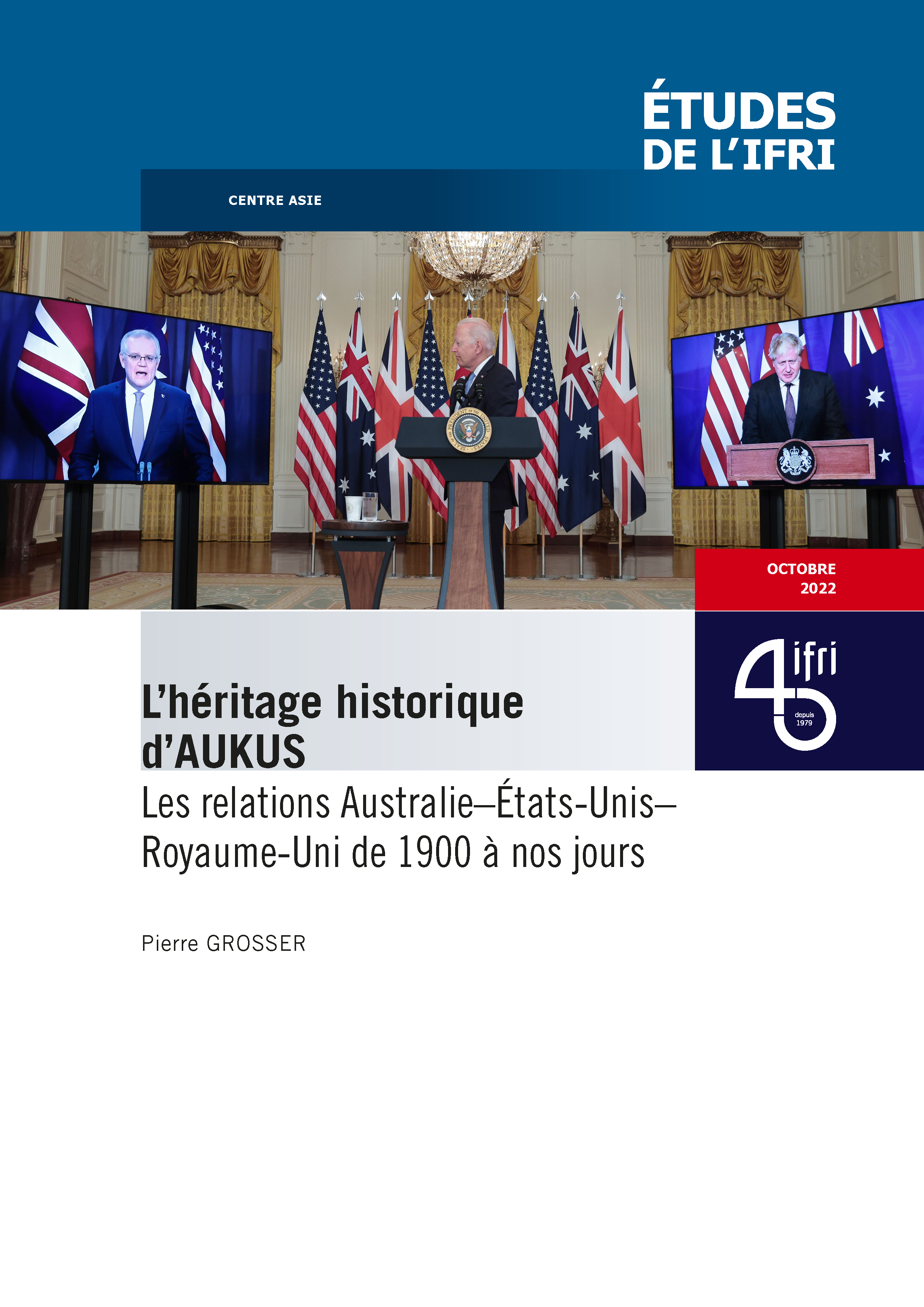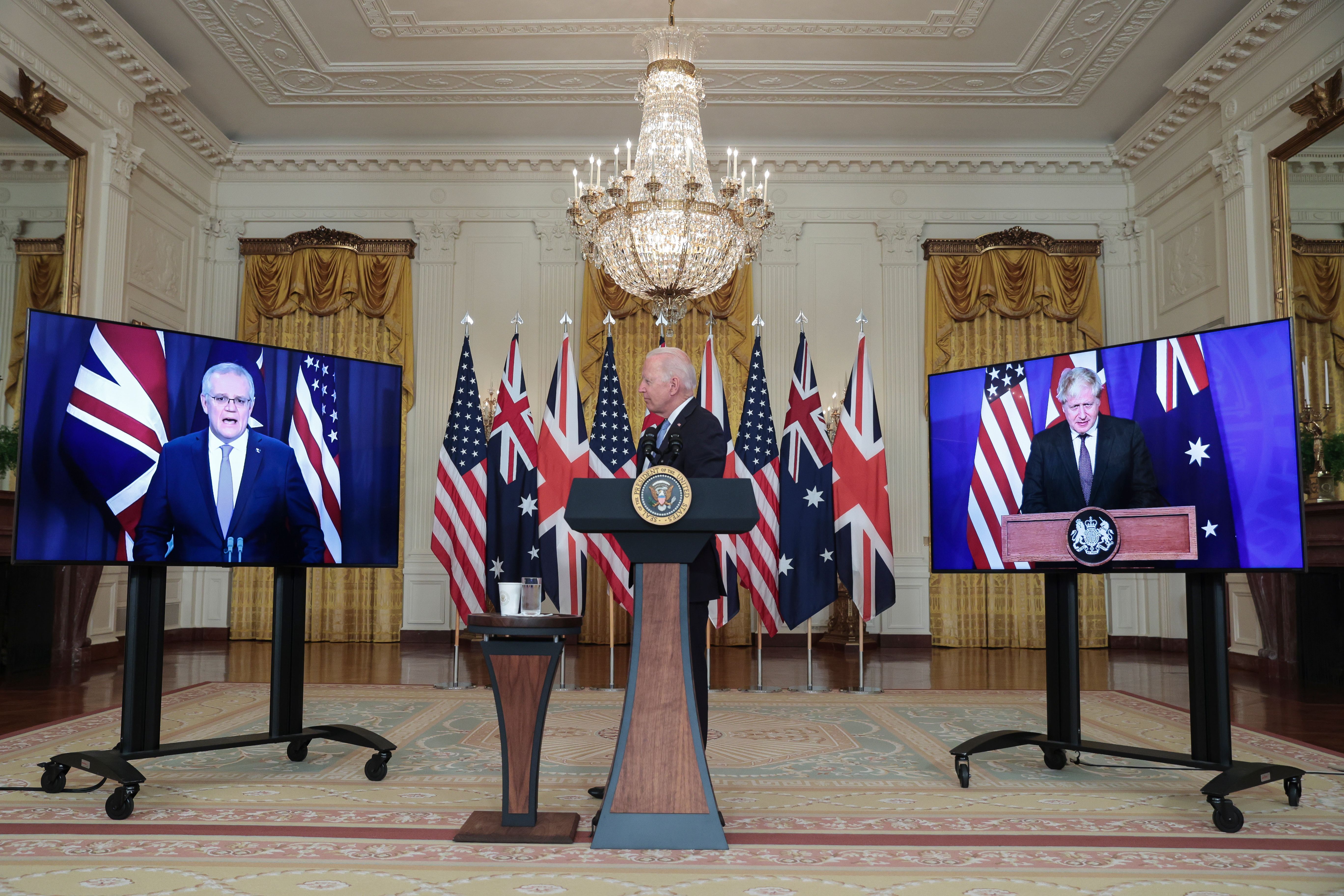The historical heritage of AUKUS: Australia-United States-United Kingdom relations since 1900

The signing of the AUKUS partnership agreement between Australia, the United States and the United Kingdom in September 2021 seems to have reconstituted a natural coalition between “Anglo-Saxon” states. This solidarity generates contradictory judgments.

For some, it is in line with the work of the Anglo-World to promote and defend values, and to confront the powers who threaten the liberal order. For others, it is part of a long-standing history of imperialism. However, the history of the relationship between these three countries, particularly in the Indo-Pacific region, shows that tensions and frustrations have been frequent.
The following paper provides an update of this history, which is often overlooked in France, even though it constitutes a source of common references between the three AUKUS countries. Australia’s international policy is taken as the frame of reference, viewed through the prism of its relations with its two great allies and protectors, the British Empire and the United States. Australia has relied on them in the face of successive threats from Asia: Japan until 1945, then Communist China (and Communism in general) during the Cold War, and since the late 2010s.
This history is not simply a changing of the guard from the British and the Americans in the Indo-Pacific, with Australians fighting real wars in the region (during World War II and the 1960s), but mostly in Europe and the Middle East under the leadership of their allies. Australia felt abandoned by Japan in 1942, and worked to involve the United States in a “forward defense” of the country in Southeast Asia. In the 1970s, with the British withdrawal east of Suez and the end of the Vietnam War, it turned to Asia, which became an opportunity rather than a threat, thanks to the post-1979 pax asiatica and the region’s vitality. The US “pivot” to the Indo-Pacific and London’s new interest in Asia are now bringing back historical questions in Australia, which is facing the challenge of a much more powerful China than before.
> This research paper is only available in French.






